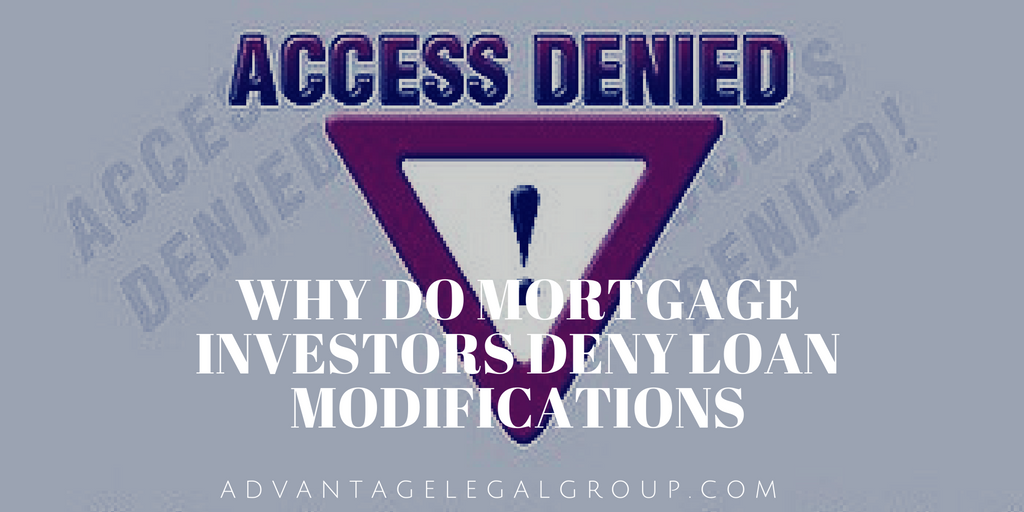Will a Loan Modification Lower Our Payments?
If you’re looking to alter your mortgage payment or you need some form of a loan modification, you’re probably wondering what it is, how it can help, and what this means for your credit and your finances moving forward. One of the common questions I get is will a loan modification lower your payments? Loan […]
Why Do Mortgage Investors Deny Loan Modifications

Why Do Mortgage Investors Deny Loan Modifications The care of your loan is much more complicated than it appears. To some, this may sound funny because many of us do not think of a mortgage as simple on any level. Usually, when making your monthly payments you only deal with the servicer. They are responsible […]





